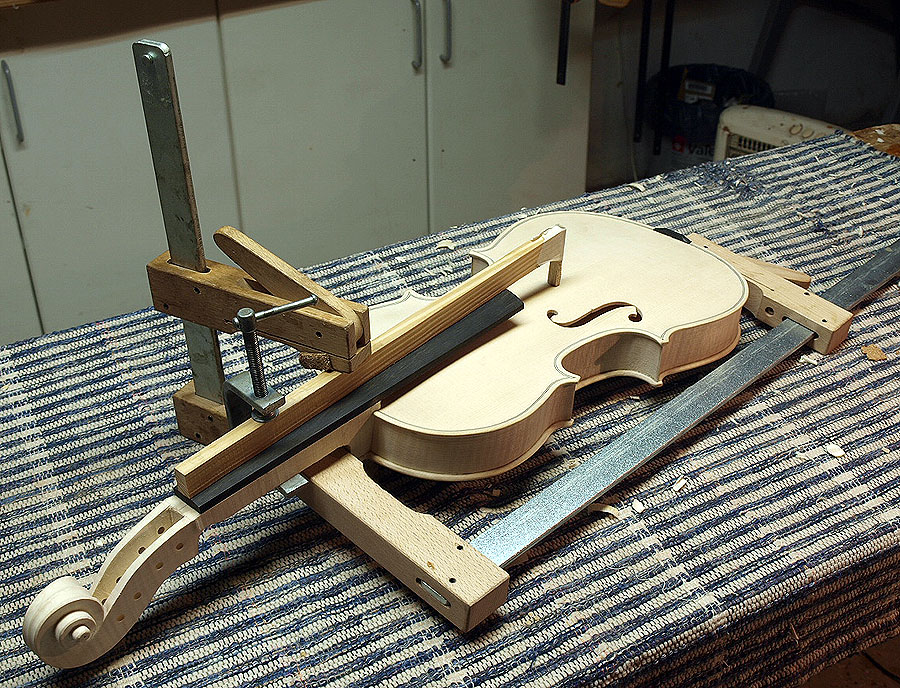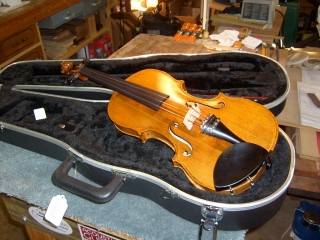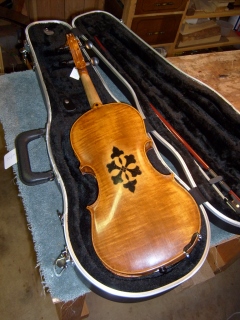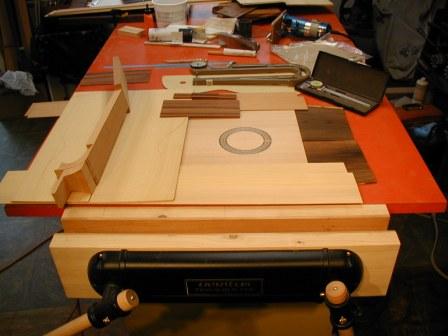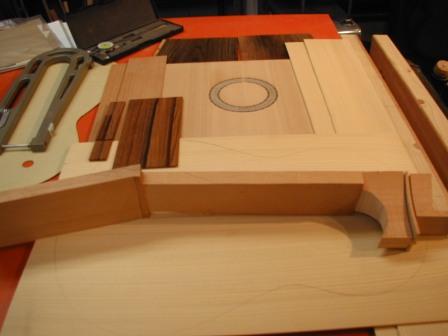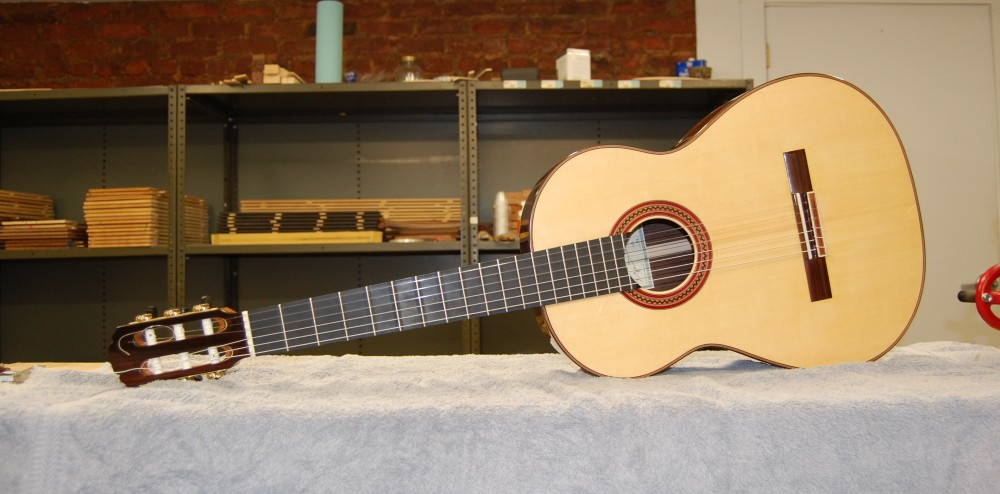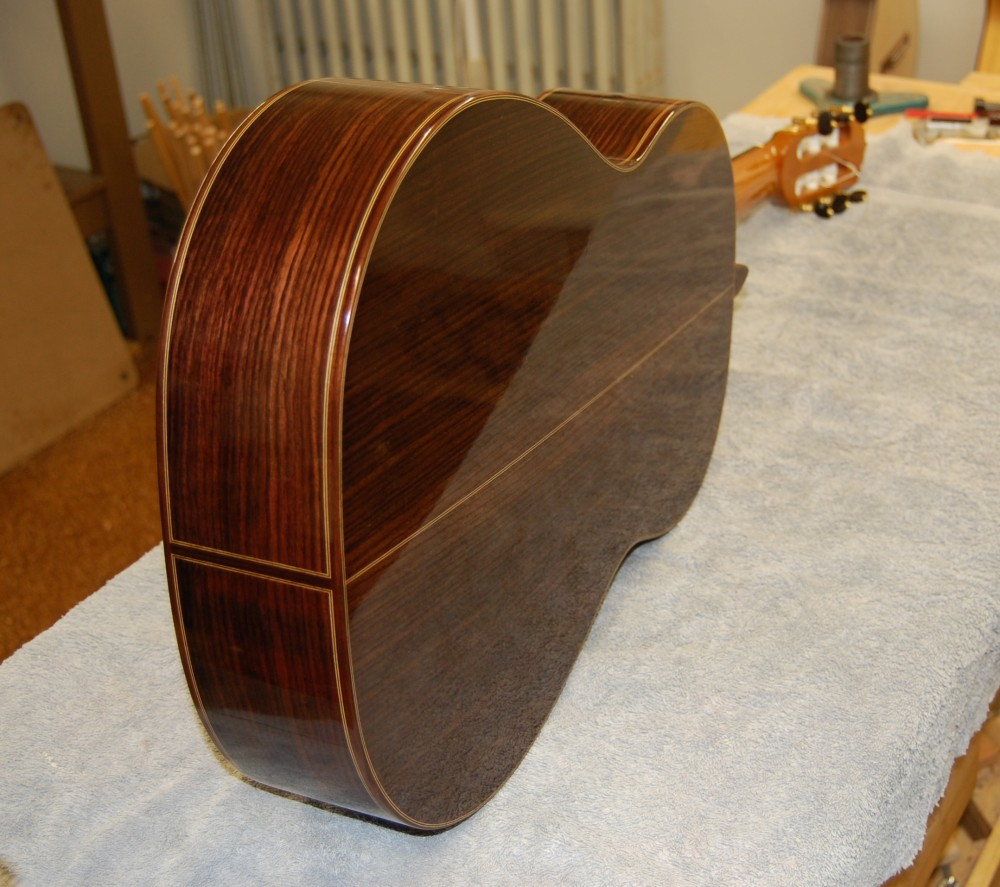|
constructordeguitarras -> RE: "Luthiers share your creations" thread (Jan. 3 2014 4:19:13)
|
Hi, Ruphus.
I want to elaborate on Andy's response. It is very useful to have the neck in rectangular shape for as long as possible to facilitate clamping in a vise. Then when the fingerboard is glued on and frets are installed, the excess neck wood on either side of the fingerboard creates handy ledges for supporting a file while filing the ends of the frets flush to the fingerboard. And as Andy implied, the neck is carved around the fingerboard. The exact size, shape, and position of the fingerboard may not be known until after it is glued on.
In fact, I change the shape of the fingerboard slightly when I carve the neck, by tying the bottom long edges in with the curve of the neck, and I also sand the long edges a little (along with the fret ends), making the fingerboard slightly narrower.
|
|
|
|
